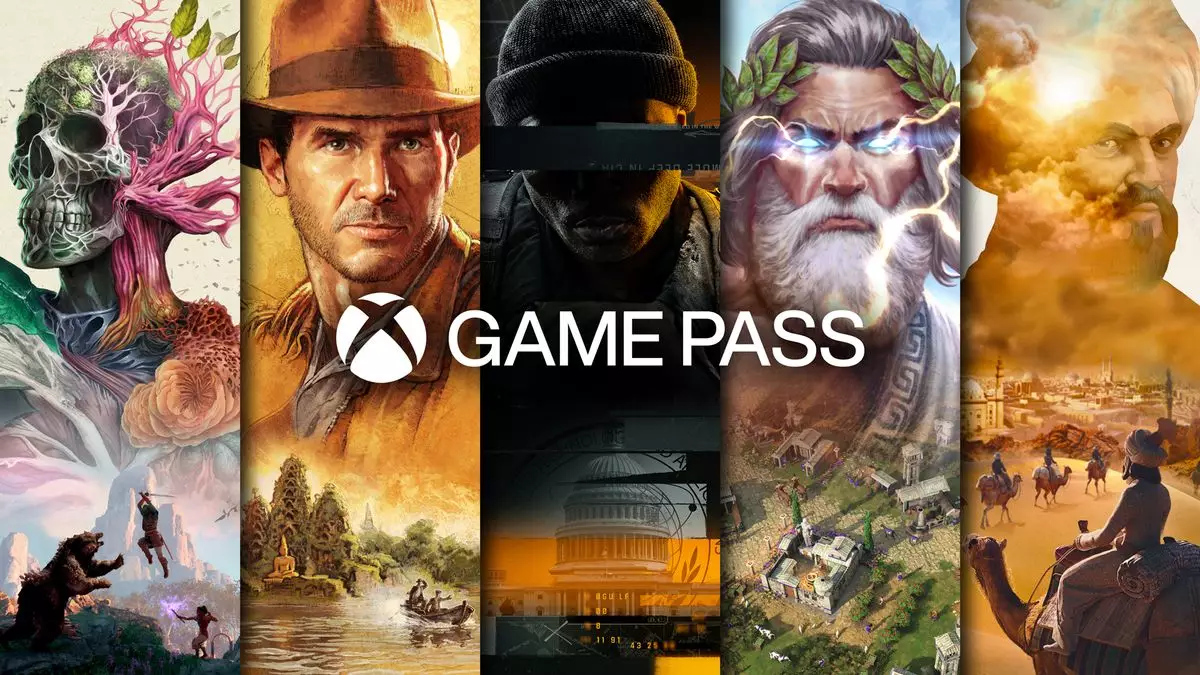For many years, the gaming market was characterized by fierce competition, particularly between industry titans Xbox and PlayStation. However, recent strategies adopted by Microsoft Gaming’s CEO, Phil Spencer, reflect a significant paradigm shift. Instead of concentrating solely on securing dominance over competitors, Microsoft is embracing a more inclusive approach to gaming by extending its titles to rival platforms. This new strategy reveals a deep understanding of the current gaming culture where cross-platform accessibility is increasingly valued by players.
Microsoft has decided to prioritize engagement over exclusivity, choosing to port popular games to other consoles such as the Nintendo Switch and PlayStation 5. Notable titles, including the indie success Grounded and the immensely popular Sea of Thieves, have successfully expanded their reach beyond Xbox. Upcoming projects, like Forza Horizon 5 and the intriguing Indiana Jones and the Great Circle, hint at a future where Microsoft’s gaming catalog is accessible to a broader audience.
Spencer’s remarks during a recent interview highlight the reasoning behind this strategy. While the company retains a significant portion of revenue from sales on its own platform, with about 100% of sales going directly to Microsoft, the decision to distribute games on rival consoles admits a deeper understanding of market dynamics. By catering to fans of their titles—regardless of their console preferences—Microsoft is aiming to foster a larger gaming community.
Spencer emphasizes that his intention is not to convert gamers into Xbox followers. His perspective acknowledges that countless players are dedicated to their chosen platforms, and attempting to sway these individuals may not yield desirable results. Instead, Spencer promotes a vision where games become the central element, transcending platform loyalty. The focus on inclusivity can be seen as a bid to cultivate a shared gaming culture that unites players across different consoles, bridging gaps that traditionally pitted the community against one another.
He states, “I want to find fans of our franchises that won’t move to Xbox, no matter what.” This statement encapsulates Microsoft’s transition from a combative stance to one of cooperation that recognizes and respects player choices. By fostering an environment where more people can access their favorite franchises, Microsoft is setting the foundation for enhanced engagement and satisfaction among gamers.
Transparency in Game Distribution
Recent communications from Microsoft indicate a commitment to transparency regarding where their games will be available. Previously, the company strategically concealed competitor logos during game showcases. However, in a noteworthy shift, Spencer asserts that acknowledging where games can be found is paramount. Such openness not only showcases confidence in their offerings but also demonstrates a departure from the exclusivity mindset that has defined past console rivalries.
As Microsoft continues to showcase its commitment to Cross-Platform exposure, players can expect to be enlightened about which storefronts host their favorite titles. This proactive stance invites a new audience and fosters a sense of honesty within the gaming industry.
Future Growth and Hardware Commitment
Despite the ongoing pivot towards inclusivity, Spencer remains committed to supporting Microsoft’s native platforms. Reports suggest that further investments are being made in the development of new Xbox hardware, with Spencer hinting at a next-generation console. This information should quell speculations surrounding Microsoft’s potential withdrawal from the hardware race akin to Sega’s exit from the console market years ago.
Additionally, discussions around a potential next-gen Xbox handheld system have also surfaced, indicating that Microsoft is still focused on innovative developments alongside its commitment to making games universally accessible. The future looks promising, with an integrative approach that emphasizes collaboration and shared experiences among gaming communities.
Microsoft’s evolving gaming strategy signifies a departure from traditional competition and sets the stage for a more inclusive and engaging gaming landscape. By prioritizing game availability across different platforms and promoting transparency, Phil Spencer is steering Microsoft towards a community-driven vision. As the gaming world continues to transform, it will be fascinating to witness how these strategies impact player relationships and the overall industry dynamic, creating an environment where fun and shared experiences are at the forefront, irrespective of the platform of choice.

